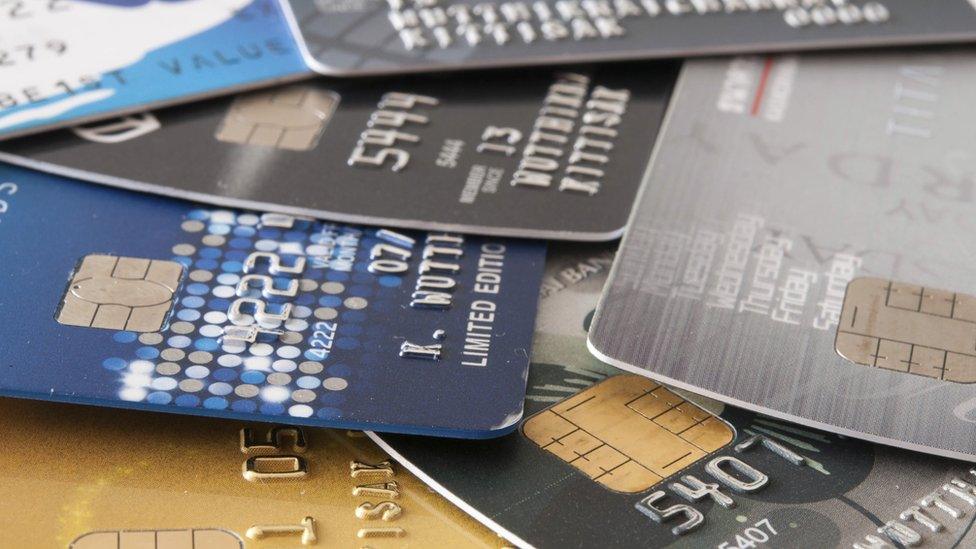Identity fraud up by 57% as thieves 'hunt' on social media
- Published
The BBC's Angus Crawford goes on the trail of identity fraudsters
The number of victims of identity theft rose by 57% last year, figures from fraud prevention service Cifas suggest.
The data, taken from 261 companies in the UK, suggests fraudsters are increasingly getting people's personal information from social media sites.
Cifas said Facebook, Twitter and LinkedIn had become a "hunting ground" for identity thieves.
It said there were more than 148,000 victims in the UK in 2015 compared with 94,500 in 2014.
A small percentage of cases involved fictitious identities but most fraudsters assumed the identity of a real person after accessing their name, date of birth, address and bank details. More than 85% of the frauds were carried out online.
Some personal details were found by hacking computers but increasingly fraudsters used social media to put together the pieces of someone's identity, Cifas said.
It urged people to check their privacy settings and think carefully about what information they share online.
How do you avoid being scammed?
The curious case of Leah Palmer
The Get Safe Online, external campaign warns people not to give away details such as phone numbers, addresses or date of birth, or pictures of their home, workplace or school, in either profile information or posts.
Often victims did not even realise they had been targeted until a bill arrived for something they did not buy or they experienced problems with their credit rating, the fraud prevention service added.

How to protect yourself and social media

Be wary of publishing any identifying information about yourself - either in your profile or in your posts - such as phone numbers, pictures of your home, workplace or school, your address or birthday
Use the privacy features to restrict strangers' access to your profile. Be on your guard against "phishing" scams, including fake friend requests and posts from individuals or companies inviting you to visit other pages or sites
Be aware of what friends post about you, or reply to your posts, particularly about your personal details and activities
Pick a user name that does not include any personal information. For example, "joe_glasgow" or "jane_liverpool" would be bad choices
Use strong passwords. Do not use the same password or PIN for more than one account, and do not use your date of birth or your child's name, include a mix of upper and lower case letters, numbers and punctuation marks. Aim for a minimum of 10 characters in a password
Update your computer's firewall, anti-virus and anti-spyware programmes. Up to 80% of cyber threats can be removed by doing this
Source: Cifas, external and Get Safe Online, external

'Online goldmine'
A report out earlier this year estimated the annual cost of fraud in the UK was £193bn - equal to nearly £3,000 per head of population.
Business fraud accounted for £144bn, the study, external said, while fraud against individuals was estimated at £9.7bn.
Simon Dukes, Cifas chief executive, said: "Fraudsters are opportunists. As banks and lenders have become more adept at detecting false identities, fraudsters have focused on stealing and using genuine people's details instead.
"Society, government and industry all have a role in preventing fraud. However, our concern is that the lack of awareness about identity fraud is making it even easier for fraudsters to obtain the information they need.
"The likes of Facebook, Twitter, LinkedIn and other online platforms are much more than just social media sites - they are now a hunting ground for identity thieves.
"We are urging people to check their privacy settings today and think twice about what they share. To a fraudster, the information we put online is a goldmine."
- Published25 May 2016

- Published31 May 2016

- Published12 April 2016

- Published25 January 2016

- Published5 May 2016

- Published11 June 2016
